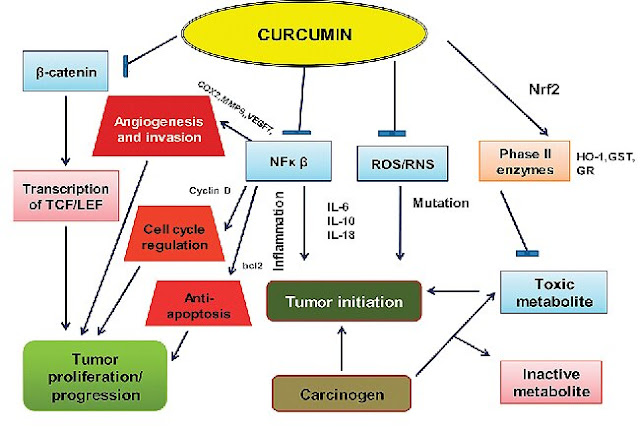With several distinct forms and subtypes, cancer is a complicated and diverse
illness. Learning about the different types of cancer is essential as our
understanding of the disease advances. We'll look at a few of the most potent
and important cancer forms that exist today in this post. Our goal is to give
you useful insights and current information to improve your understanding of
these malignancies.
1. Lung Cancer: The Silent Killer
Lung cancer continues to be one of the most common and fatal forms of cancer
worldwide. Because it is asymptomatic in the early stages, it is frequently
detected at an advanced level. There are two primary categories of lung
cancer:
- Non-Small Cell Lung Cancer (NSCLC): This kind makes up around 85% of instances of lung cancer, making it the most prevalent kind. Adenocarcinoma, Squamous Cell Carcinoma, and Large Cell Carcinoma are types of NSCLC. Treatment choices and characteristics vary depending on the subtype.
- Small Cell Lung Cancer (SCLC): SCLC is renowned for its quick growth and early dissemination to other body parts, despite being less prevalent. In comparison to NSCLC, it has a worse prognosis and is frequently linked to smoking.
Results can be greatly impacted by preventing risk factors including smoking
and early detection through routine tests.
2. Breast Cancer: Advances in Detection and Treatment
Although it can affect men as well, breast cancer is one of the most common cancers in women. It starts in the breast tissue and can spread to other organs or surrounding lymph nodes. Survival rates have increased due to significant breakthroughs in diagnosis and treatment:
- HER2-Positive Breast Cancer: This kind is characterized by a particular gene mutation that speeds up the cancer cells' growth. Treatments for HER2-positive breast cancer that target specific molecules, including trastuzumab (Herceptin), have had encouraging outcomes.
- Triple-Negative Breast Cancer: It is more difficult to treat this kind with hormone treatments since it lacks HER2, progesterone, and estrogen receptor expression. The hunt for better therapies for this subtype is still on.
Personalized medication and routine mammograms have made breast cancer
detection and treatment more successful than in the past.
3. Prostate Cancer: Understanding Risk Factors and Treatment Options
The most prevalent cancer in males is prostate cancer, which frequently grows slowly and exhibits few signs in its early stages. Seminal fluid production is the primary function of the prostate gland, which is principally affected by the condition. Important elements in comprehending and treating prostate cancer consist of:
- Prostate-Specific Antigen (PSA): Prostate cancer may be indicated by elevated PSA values, although benign diseases may also be the cause of high levels. PSA testing is still a vital tool for prostate cancer early detection.
- Gleason Score: This grading method uses the microscopic appearance of prostate cancer to determine how aggressive the disease is. Treatment choices are impacted by higher Gleason scores, which signify more aggressive cancer.
Depending on the stage and aggressiveness of the malignancy, treatment options
include radiation therapy, hormone therapy, surgery, and active
surveillance.
4. Colorectal Cancer: Importance of Early Screening
One of the main causes of cancer-related mortality globally, colorectal cancer encompasses malignancies of the colon and the rectum. Enhancing survival rates requires routine screening for early detection:
- Colonoscopy: Precancerous polyps can be seen and removed during this treatment before they turn into cancer because it makes the colon and rectum visible.
- Rectal Cancer: Rectal cancer, a form of colorectal cancer that affects the rectum, may respond differently to treatment than colon cancer.
Modifications to lifestyle such include eating a high-Fiber diet and getting
regular exercise can also help lower the risk of colorectal cancer.
5. Melanoma: The Most Dangerous Skin Cancer
The most serious kind of skin cancer is called melanoma, and it is caused by melanocytes, which are the cells that give skin its color. It has a reputation for spreading quickly to other body parts. Important melanoma facts are as follows:
- ABCDE Rule: This mnemonic aids in the identification of moles that may be cancerous. Asymmetry, irregular borders, color variation, diameter larger than 6 mm, and evolving qualities are what it stands for.
- Treatment and Prognosis: Surgical excision is a highly effective treatment for early-stage melanoma. Additional therapies for advanced melanoma may include immunotherapy, chemotherapy, and targeted therapy.
Melanoma can be prevented and detected early by protecting your skin from
excessive sun exposure and by having regular skin examinations.
Conclusion
You can make more informed judgments regarding your health if you are aware of
these potent cancer types: melanoma, lung cancer,
breast cancer, prostate cancer, and colorectal cancer. Early detection and successful care
of many diseases are greatly aided by breakthroughs in medical therapies,
lifestyle modifications, and routine screenings. Proactive and knowledgeable
living can have a big impact on cancer treatment and prevention.
For the latest updates on cancer research and treatment options, consult
reputable sources such as the
American Cancer Society,
National Cancer Institute, and peer-reviewed medical journals.


















